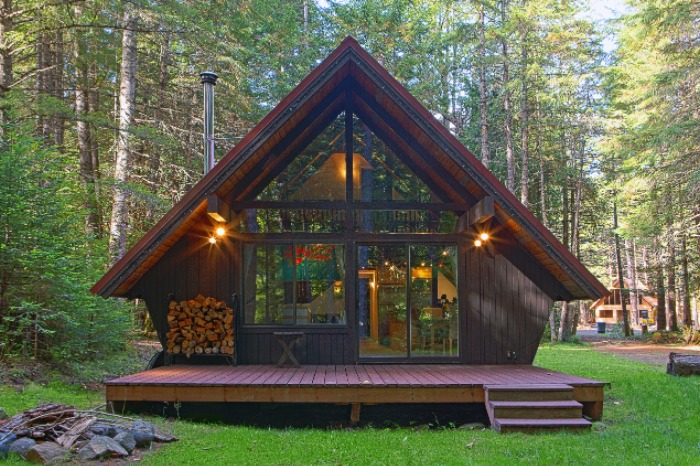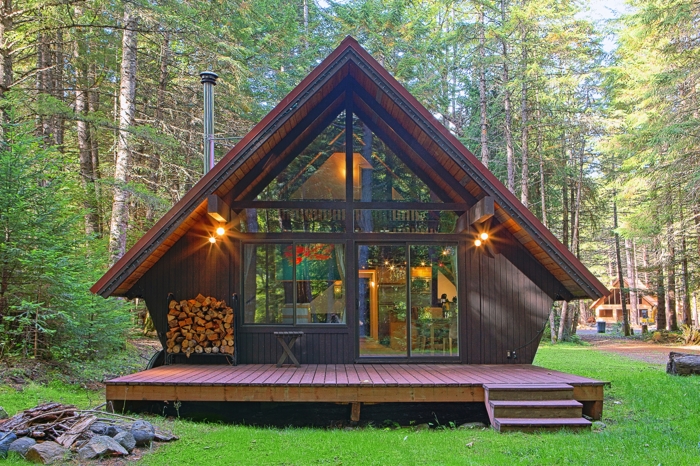Navigating the complex world of Airbnb HOA rules is a critical step for any property owner looking to dominate the short-term rental market. Homeowners associations (HOAs) wield significant power in planned communities, enforcing covenants, conditions, and restrictions (CC&Rs) that can make or break your Airbnb business.
At 10XBNB, we empower hosts to turn properties into cash-flowing assets while staying compliant with HOA regulations. This article will arm you with the knowledge to understand HOA laws, avoid legal issues, and maximize your income from short-term rentals. Let’s break down Airbnb Tips on how to thrive in this space, answer key questions, and leverage 10XBNB’s proven strategies to 10X your results.
Understanding HOA Rules and Short-Term Rentals
HOAs exist to maintain community standards, protect property values, and ensure a cohesive neighborhood experience. However, their rules often clash with the ambitions of Airbnb hosts. Many HOAs impose restrictions on short-term rentals, citing concerns about noise, guest parking, and transient occupancy.
These covenants, conditions, and restrictions (CC&Rs) are legally binding documents that every homeowner agrees to upon purchasing a property in an HOA-governed community. Violating them can lead to fines, legal action, or even the loss of your ability to rent.
The rise of short-term vacation rentals has prompted many HOAs to tighten their grip. Some communities outright ban rentals under a certain duration—often 30 days—to prevent the revolving door of Airbnb guests. Others impose strict guest policies or limit the number of short-term renters allowed.
As a responsible host, it’s crucial to understand what Airbnb insurance covers for renters to protect your investment. At 10XBNB, we teach hosts to review their HOA’s governing documents before launching their rental business. This proactive step saves you from costly consequences and positions you to operate with confidence.
Can an HOA Stop You from Doing Airbnb?

Yes, an HOA can stop you from running an Airbnb if their CC&Rs prohibit short-term rentals. HOA boards have the authority to enforce rental restrictions, and many homeowners are caught off guard when fines or cease-and-desist letters arrive.
For example, some HOAs define short-term leasing as anything under six months, while others set a 30-day minimum. If your community’s rules explicitly ban vacation rentals, attempting to list on Airbnb could trigger legal action.
However, not all hope is lost. Some HOAs have vague or outdated language in their governing documents, which a skilled real estate attorney can challenge. At 10XBNB, we connect hosts with top-tier Airbnb lawyers who specialize in navigating HOA disputes. By understanding the specific language in your CC&Rs, you can identify loopholes or negotiate with the HOA board to amend restrictive covenants.
How to Get Around an Airbnb HOA
Getting around HOA restrictions requires strategy, not shortcuts. First, thoroughly review your HOA’s CC&Rs and bylaws. Look enlarging ambiguous terms or loopholes, such as undefined rental periods or exemptions for certain types of leases.
If the language is unclear, consult an attorney to interpret the rules in your favor. At 10XBNB, our mentorship program guides hosts through this process, helping you craft a compliant yet profitable rental strategy.
Another approach is to engage directly with the HOA board. Present a professional case for your Airbnb business, highlighting how it benefits the community—such as increased maintenance funds from your rental income.
Propose compromises, like limiting guest stays to a short period or implementing strict vetting processes for Airbnb guests. If the board remains inflexible, consider rallying other homeowners to vote for changes to the CC&Rs, as many HOAs require a majority vote to amend rules.
Can an HOA Prevent You from Renting Out Your Home?
HOAs can prevent you from renting out your home if their governing documents explicitly restrict rentals. This applies to both short-term and long-term rentals, though short-term vacation rentals face stricter scrutiny.
For instance, some HOAs cap the number of rental properties allowed in the community to maintain a “resident-first” atmosphere. Others require board approval for any lease, giving them veto power over your Airbnb plans.
To counter this, align your rental strategy with the community’s rules. If short-term rentals are banned but mid-term leases (30-90 days) are permitted, pivot to mid-term lease agreements to target traveling professionals or college students.
10XBNB’s property management course equips you with the tools to adapt your business model while staying compliant, ensuring your property generates consistent income.
Can I Stop My Neighbor from Running an Airbnb?

If your neighbor’s Airbnb is disrupting the neighborhood, you have options. Start by reviewing the HOA’s CC&Rs to confirm whether short-term rentals are allowed. If they’re prohibited, report the violation to the HOA board with evidence, such as screenshots of the Airbnb listing or records of excessive noise from guests. Many HOAs will issue warnings or fines to enforce compliance.
If short-term rentals are permitted, you can still address specific issues like guest parking or common area misuse. Work with the HOA board to establish clearer rules, such as requiring hosts to register Airbnb guests or install security cameras to monitor activity. At 10XBNB, we emphasize proactive communication to resolve conflicts without escalating to legal issues, preserving community harmony while protecting your interests.
The Role of CC&Rs in Short-Term Rental Restrictions
Covenants, conditions, and restrictions (CC&Rs) are the backbone of HOA authority. These documents outline what homeowners can and cannot do with their property, including whether short-term rentals are allowed. Common restrictions include minimum lease terms, bans on transient occupancy, or limits on the number of guests per property. Some CC&Rs even require hosts to obtain written approval from the HOA board before listing on Airbnb.
Understanding your CC&Rs is non-negotiable. Many homeowners overlook these documents, only to face fines or legal action later. At 10XBNB, we train hosts to analyze their CC&Rs with precision, identifying opportunities to operate within the rules or challenge overly restrictive covenants. If your HOA’s language is vague, a real estate attorney can argue that short-term rentals are permissible, giving you a competitive edge.
Why HOAs Restrict Short-Term Rentals
HOAs often restrict short-term rentals due to concerns about community standards and property values. Frequent guest turnover can lead to noise complaints, overuse of common areas, and safety issues, alienating long-term residents. Neighbors may worry that vacation rentals attract rowdy guests or lower the neighborhood’s appeal. Additionally, some HOAs believe short-term leasing undermines the “planned community” vibe they’re trying to maintain.
However, these concerns aren’t always justified. Well-managed Airbnb rentals can boost local economies and fund community maintenance. At 10XBNB, we teach hosts to run professional operations that address these fears—think vetted guests, quiet hours, and pristine properties. By aligning your business with the community’s goals, you can turn skeptics into supporters.
HOA laws vary by state, but they generally grant HOAs broad authority to enforce their rules. Violating Airbnb HOA rules can result in fines, liens, or even lawsuits. For example, if your CC&Rs ban short-term rentals and you list on Airbnb, the HOA board can impose daily fines until you comply. In extreme cases, they may pursue legal action to force you to stop.
To avoid these pitfalls, consult a real estate attorney familiar with HOA laws in your area. They can review your CC&Rs, negotiate with the board, or represent you if legal issues arise. 10XBNB’s network of Airbnb real estate agents and legal experts ensures you’re never caught off guard, giving you the confidence to build a thriving rental business.
Pro Tips for Staying Compliant with HOA Rules
- Read the Fine Print: Study your CC&Rs and bylaws before listing your property. Highlight any language related to rentals, leasing, or guest policies.
- Build Relationships: Attend HOA meetings and connect with board members. A positive rapport can make them more open to your Airbnb plans.
- Implement Safeguards: Use damage waiver agreements and strict guest screening to minimize disruptions and protect your property.
- Stay Professional: Treat your Airbnb like a business, not a side hustle. Invest in cleaning services to keep your property pristine and neighbors happy.
- Plan for Slow Seasons: Prepare for slow Airbnb months by diversifying your rental strategy, such as offering mid-term leases.
The Consequences of Ignoring HOA Rules
Ignoring Airbnb HOA rules is a recipe for disaster. Fines can range from $50 to $500 per violation, piling up quickly if you don’t comply. Persistent violations may lead to liens on your property or lawsuits from the HOA board. In some cases, HOAs can force you to remove your Airbnb listing or ban rentals altogether, crippling your income.
Worse, negative reviews from unhappy neighbors can damage your reputation on Airbnb. If guests face harassment or restrictions due to HOA conflicts, they may leave poor feedback, hurting your bookings. 10XBNB’s review removal service can help mitigate this, but prevention is always better than damage control.
How 10XBNB Helps You Succeed
At 10XBNB, we don’t just teach you to survive HOA restrictions—we show you how to thrive. Our mentorship program pairs you with industry experts who’ve mastered the art of short-term rentals in HOA-governed communities. From analyzing CC&Rs to negotiating with board members, we provide the tools and strategies to turn your property into a money-making machine.
Our comprehensive training covers everything from property management to guest experience, ensuring you remain fully compliant while maximizing profits. Whether you’re dealing with restrictive covenants or skeptical neighbors, 10XBNB equips you to dominate the short-term rental market. Join our community of elite hosts and unlock the secrets to 10X your Airbnb success.

Pros and Cons of Airbnb in HOA Communities
Pros
- High Income Potential: Short-term rentals often generate more revenue than long-term leases, especially in high-demand areas.
- Community Benefits: Rental income can fund HOA maintenance, improving common areas and amenities.
- Flexibility: You can use your property for personal stays during slow Airbnb months, balancing business and lifestyle.
Cons
- Strict Regulations: Many HOAs impose tight restrictions on short-term rentals, limiting your options.
- Neighbor Conflicts: Guests who disregard community standards can strain relationships with residents.
- Legal Risks: Violating HOA rules can lead to fines, legal action, or loss of rental privileges.
The Future of Short-Term Rentals in HOAs
As short-term rentals grow in popularity, HOAs are adapting—some by embracing them, others by cracking down. Progressive HOAs are creating frameworks for hosts, such as requiring registration or setting guest parking rules. Others are doubling down on bans, driven by complaints from residents or fears of declining property values.
To stay ahead, align your Airbnb business with the community’s vision. Invest in professional management, prioritize guest vetting, and contribute to the neighborhood’s upkeep. By positioning yourself as a responsible host, you can influence HOA policies and secure your place in the short-term rental market.
Take Control of Your Airbnb Success

Airbnb HOA rules don’t have to derail your dreams of financial freedom. By understanding your CC&Rs, engaging with your HOA board, and leveraging 10XBNB’s expertise, you can turn restrictions into opportunities. Whether you’re navigating legal issues, addressing neighbor concerns, or optimizing your property for maximum income, 10XBNB has your back. Sign up for our mentorship program today and join the ranks of elite hosts who are 10Xing their short-term rental businesses. The only limit is your ambition—let’s make your property a cash-flowing powerhouse.













